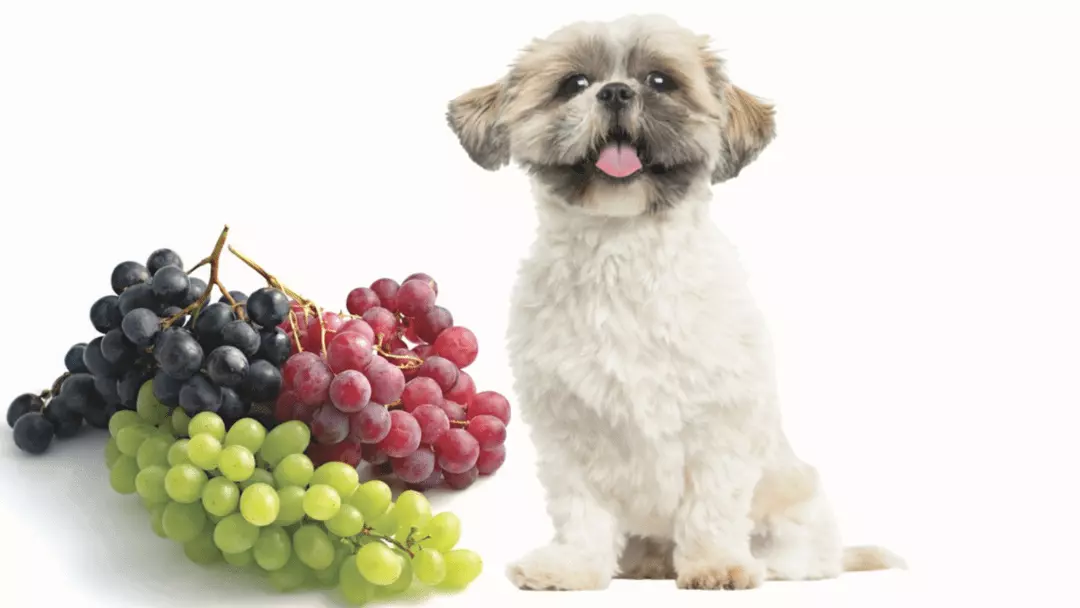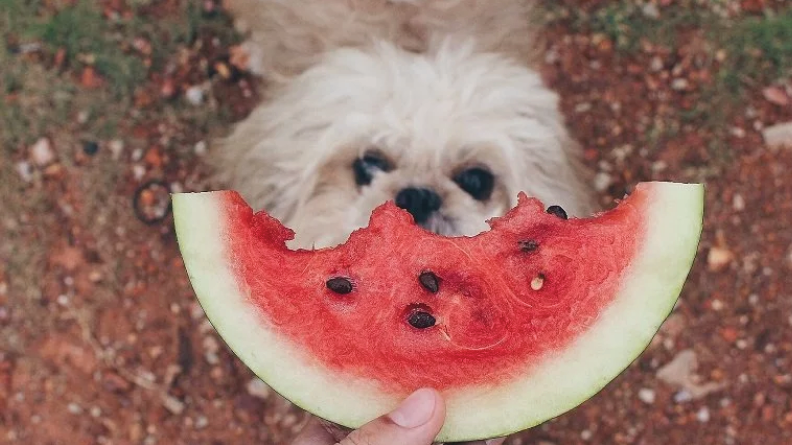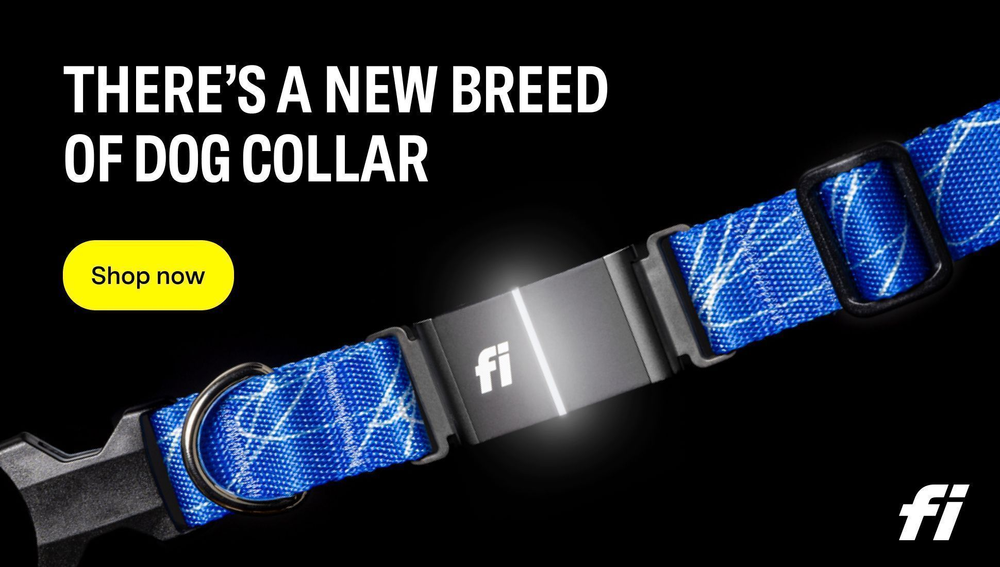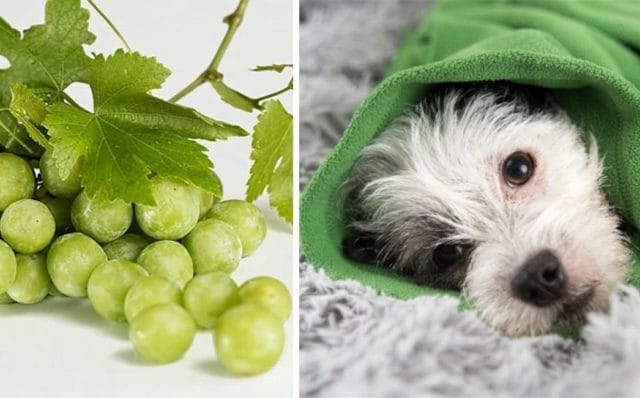Are you a proud Maltese owner and wondering if grapes are safe for your furry friend? Well, you've come to the right place! In this article, we will explore whether Maltese dogs can eat grapes and the potential risks associated with this popular fruit.

The Dangers of Grapes for Maltese Dogs
Grapes may be a tasty snack for humans, but when it comes to our furry companions, the situation is quite different. While some fruits are generally safe for dogs to consume, grapes can be toxic and pose serious health risks. It's important to understand that the exact reason why grapes are toxic to dogs is still unclear. However, it has been observed that ingestion of grapes can lead to kidney failure in some cases.
Even a small amount of grapes can be harmful to your Maltese, so it's best to err on the side of caution and avoid giving them grapes altogether. The toxicity of grapes can vary depending on the individual dog, so it's not worth taking the risk. Your Maltese's health and well-being should always be your top priority.

Symptoms of Grape Toxicity in Dogs
Grapes, while a healthy snack for humans, pose a severe threat to dogs, including Maltese breeds. The exact toxic substance in grapes remains unidentified, making it crucial for dog owners to be vigilant about the potential signs of grape toxicity. In this section, we'll explore the symptoms that may manifest if your Maltese dog has ingested grapes.
1. Vomiting:
- One of the initial signs of grape toxicity is vomiting. If your Maltese dog has consumed grapes, recurrent vomiting may occur as the body attempts to expel the toxic substances.
2. Lethargy:
- Grape toxicity can lead to lethargy or extreme tiredness in dogs. If your usually energetic Maltese companion becomes unusually sluggish, it may indicate a potential issue.
3. Loss of Appetite:
- A sudden loss of appetite is another red flag. If your Maltese dog, known for its enthusiastic eating habits, refuses food after ingesting grapes, it warrants immediate attention.
4. Abdominal Pain:
- Dogs experiencing grape toxicity may exhibit signs of abdominal pain. This can manifest as restlessness, whining, or a hunched posture due to discomfort.
5. Changes in Urination:
- Grape toxicity can impact a dog's kidneys, leading to changes in urination patterns. Increased or decreased urination, along with potential discoloration, may be observed.
6. Tremors or Shaking:
- In severe cases, dogs may experience tremors or shaking. This neurological response indicates the potential impact of grape toxicity on the central nervous system.
7. Dehydration:
- Vomiting and changes in kidney function can contribute to dehydration. Keep an eye on your Maltese dog's water intake, as reduced hydration levels can exacerbate the effects of grape toxicity.
8. Hyperactivity:
- While lethargy is a common symptom, some dogs may exhibit hyperactivity or restlessness as a response to grape toxicity. Unusual behavior should be assessed promptly.
9. Pale Gums:
- Grape toxicity can affect the circulatory system, leading to pale gums in dogs. Check the color of your Maltese dog's gums for any signs of paleness.
10. Collapse:
- In severe cases, grape toxicity can lead to a dog collapsing. If your Maltese dog shows signs of weakness, inability to stand, or collapsing, seek immediate veterinary assistance.
It's crucial to note that the symptoms of grape toxicity can vary among dogs, and not all dogs may display the same signs. If you suspect your Maltese dog has ingested grapes or shows any of the mentioned symptoms, do not hesitate to seek emergency veterinary care. Early intervention is key to minimizing the potential harm caused by grape toxicity and increasing the chances of a positive outcome for your beloved furry friend.
What to Do if Your Maltese Dog Eats Grapes
If you catch your Maltese eating grapes or suspect that they have consumed some, don't panic. The first thing you should do is contact your veterinarian for guidance. They will be able to assess the situation and provide you with the necessary instructions.
In some cases, inducing vomiting may be recommended if the grapes were consumed within a short period of time. However, this should only be done under the guidance of a veterinarian. They may also recommend bringing your Maltese in for a thorough examination and monitoring to ensure their kidneys are functioning properly.
Safe Alternatives to Grapes for Maltese Dogs
When it comes to treating your Maltese dog, it's essential to be mindful of their safety and well-being. Grapes are known to be toxic to dogs, including Maltese breeds, so it's crucial to explore safe alternatives that provide both enjoyment and nutritional benefits. In this section, we'll delve into a list of fruits that serve as excellent and safe alternatives to grapes for your beloved Maltese companion.
1. Apples:
- Apples are a crunchy and nutritious option for Maltese dogs. Ensure to remove seeds and the core, and offer them in bite-sized pieces. The fiber in apples can contribute to your dog's overall digestive health.
2. Blueberries:
- Packed with antioxidants, blueberries are not only safe but also beneficial for Maltese dogs. These tiny berries make for a tasty and healthy treat that your furry friend is likely to enjoy.
3. Strawberries:
- Strawberries are a delicious and vitamin-rich choice for Maltese dogs. Rich in vitamin C and other nutrients, strawberries can be a refreshing addition to your dog's treat repertoire.
4. Bananas:
- Bananas are a good source of potassium and provide a natural sweetness that dogs find appealing. Peel and slice bananas into small pieces for a delightful and healthy treat.
5. Watermelon:

- In moderation, seedless watermelon can be a hydrating and tasty option for Maltese dogs. Remove seeds and offer small, bite-sized pieces to prevent choking.
6. Cantaloupe:
- Cantaloupe is another melon variety that Maltese dogs can enjoy. Remove seeds and the rind, and provide bite-sized portions as a refreshing treat.
7. Pineapple:
- Pineapple, when cut into small pieces and free of the tough outer skin, can be a tropical and nutritious treat for your Maltese dog. It contains enzymes that may aid in digestion.
8. Pears:
- Pears, when sliced and with seeds removed, offer a juicy and fiber-rich option for your Maltese companion. Ensure the pear is ripe but not overly soft.
9. Raspberries:
- Raspberries, in moderation, are safe for Maltese dogs. They are low in calories and high in fiber, making them a healthy choice for a snack.
10. Carrots:
- Crunchy and low in calories, carrots serve as an excellent alternative to grapes. They are not only safe but also beneficial for your Maltese dog's dental health.
Remember to introduce new treats gradually and monitor your Maltese dog for any signs of allergies or digestive issues. Each dog is unique, so it's essential to tailor their treats to their individual preferences and dietary needs. By opting for these safe alternatives, you can ensure that your Maltese companion enjoys a variety of treats without compromising their health.
Other Foods to Avoid Feeding Maltese Dogs
In addition to grapes, there are several other foods that you should avoid feeding your Maltese. These include chocolate, caffeine, onions, garlic, avocado, and raisins. These foods can be toxic to dogs and can cause a range of health issues, from gastrointestinal upset to more serious conditions.
It's essential to be mindful of what you feed your Maltese and to educate yourself about the potential risks associated with certain foods. By providing a balanced and nutritious diet, you can help ensure that your furry friend stays healthy and happy.
Tips for Keeping Your Maltese Dog Healthy and Safe
Aside from being cautious about what your Maltese eats, there are other steps you can take to keep them healthy and safe. Regular visits to the veterinarian for check-ups and vaccinations are crucial. A well-balanced diet, regular exercise, and mental stimulation are also important for your Maltese's overall well-being.
Additionally, it's important to provide a safe and comfortable environment for your Maltese. Keep hazardous substances and plants out of reach, and provide them with plenty of fresh water and a cozy place to rest.
Sharing Food Responsibly
Sharing food with your furry companion can be a delightful experience, strengthening the bond between you and your Maltese dog. However, it's crucial to exercise caution and responsibility when it comes to sharing your meals. Not all human foods are safe for dogs, and some can be downright harmful. In this section, we'll explore guidelines for sharing food with your Maltese dog in a responsible manner.
1. Educate Yourself:
- Before sharing any food with your Maltese dog, educate yourself about what is safe and what should be avoided. Grapes, chocolate, onions, and certain spices are just a few examples of human foods that can be toxic to dogs.
2. Avoid Toxic Foods:
- Never share foods that are known to be toxic to dogs. Grapes and raisins, in particular, should be strictly avoided due to their potential to cause severe health issues, including kidney failure.
3. Healthy Alternatives:
- Opt for healthy alternatives when sharing food with your Maltese dog. Fruits like apples, blueberries, and carrots make excellent and safe choices. These treats not only satisfy your dog's cravings but also provide nutritional benefits.

4. Beware of Seasonings:
- Avoid sharing foods heavily seasoned with spices, salt, or other additives. Dogs have sensitive stomachs, and certain seasonings can lead to digestive upset or even toxicity.
5. Portion Control:
- Practice portion control when sharing food with your Maltese dog. While a small taste of a safe treat is generally okay, excessive portions can lead to weight gain and other health issues.
6. Monitor for Allergic Reactions:
- Pay attention to your Maltese dog's reactions after sharing food. If you notice any signs of allergies, such as itching, redness, or digestive disturbances, refrain from sharing that particular food in the future.
7. Say No to Table Scraps:
- Resist the temptation to share table scraps with your Maltese dog. While it may be tempting to offer leftovers, many human foods can be too rich or unhealthy for your pet.
8. Consult Your Veterinarian:
- If you're unsure about whether a particular dog food is safe for your Maltese dog, consult your veterinarian. They can provide personalized advice based on your dog's health and dietary needs.
9. Be Mindful of Calories:
- Remember that treats, even healthy ones, contribute to your dog's overall calorie intake. Adjust their regular meals accordingly to maintain a balanced diet.
10. Enjoy Responsibly:
- Sharing food with your Maltese dog can be a joyous experience when done responsibly. It strengthens the bond between you and your furry friend while ensuring their health and well-being.
By following these guidelines, you can share food with your Maltese dog in a way that enhances the joy of mealtime without compromising their safety or health.
Conclusion
In conclusion, grapes are not safe for Maltese dogs to consume. The potential risks of grape toxicity, including kidney failure, make it crucial to avoid giving your furry friend grapes in any amount. Instead, opt for safe alternatives like blueberries, apples, and strawberries, which can provide essential vitamins and nutrients without the potential dangers.
Remember, when it comes to your Maltese's health and well-being, it's better to be safe than sorry. Be mindful of what your dog eats, provide them with a balanced diet, and consult with your veterinarian for any concerns or questions you may have. Your furry friend will thank you for it!
Frequently Asked Questions (FAQs)

- Q1 : Can Maltese dogs eat grapes?
- A: No, Maltese dogs should not eat grapes as they are toxic and can lead to serious health issues.
- Q2: Why are grapes dangerous for Maltese dogs?
- A: The exact toxic substance in grapes is unknown, but they can cause severe kidney damage and other complications in dogs.
- Q3: What happens if my Maltese dog eats grapes?
- A: If your dog consumes grapes, seek immediate veterinary attention, even if there are no immediate symptoms. Grape toxicity can be fatal.
- Q4: Are there safe alternatives to grapes for Maltese dogs?
- A: Yes, Maltese dogs can enjoy safe fruits like apples, blueberries, and strawberries in moderation as alternatives to grapes.
- Q5: Can I feed my Maltese dog raisins or grape products?
- A: No, raisins and other grape products are equally dangerous and should be avoided to prevent potential toxicity in Maltese dogs.
- Q6: What are the symptoms of grape toxicity in Maltese dogs?
- A: Symptoms may include vomiting, lethargy, loss of appetite, abdominal pain, and changes in urination. Immediate veterinary attention is crucial.
- Q7: Is it safe to share any human food with my Maltese dog?
- A: It's essential to be cautious. Many human foods, including grapes, can be toxic to dogs. Stick to a diet approved by your veterinarian.
- Q8: Can a small amount of grapes harm my Maltese dog?
- A: Yes, even a small quantity of grapes can be harmful, and the impact varies from dog to dog. It's best to avoid grapes altogether.
- Q9: Are there long-term effects if my Maltese dog consumes grapes once?
- A: While some dogs may not show immediate symptoms, grape toxicity can lead to long-term kidney damage. Regular veterinary check-ups are recommended.
- Q10: How can I educate myself further about the safety of my Maltese dog's diet?
- A: Stay informed by consulting your veterinarian regularly, researching reputable pet nutrition sources, and attending informational sessions on dog care.




